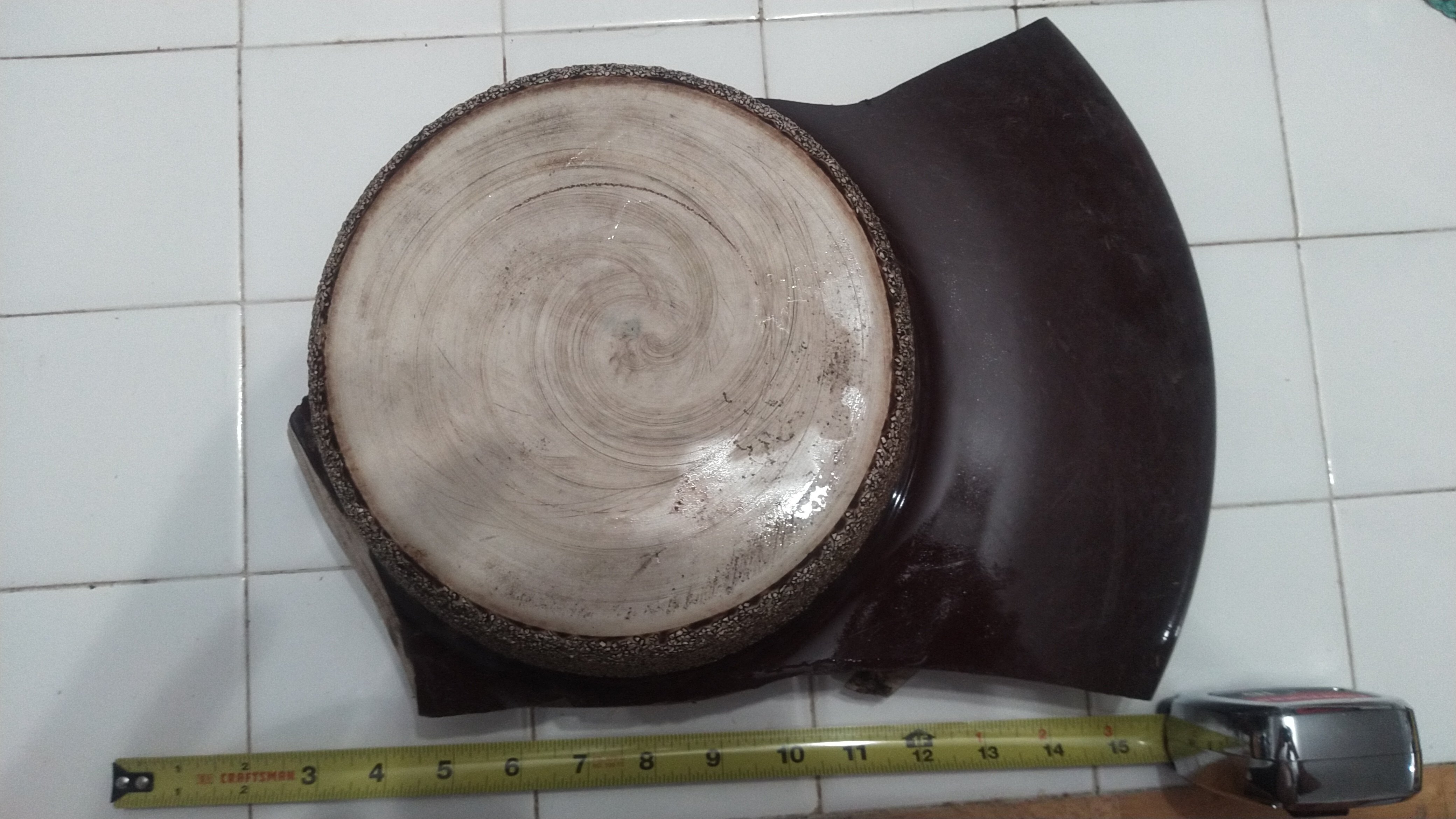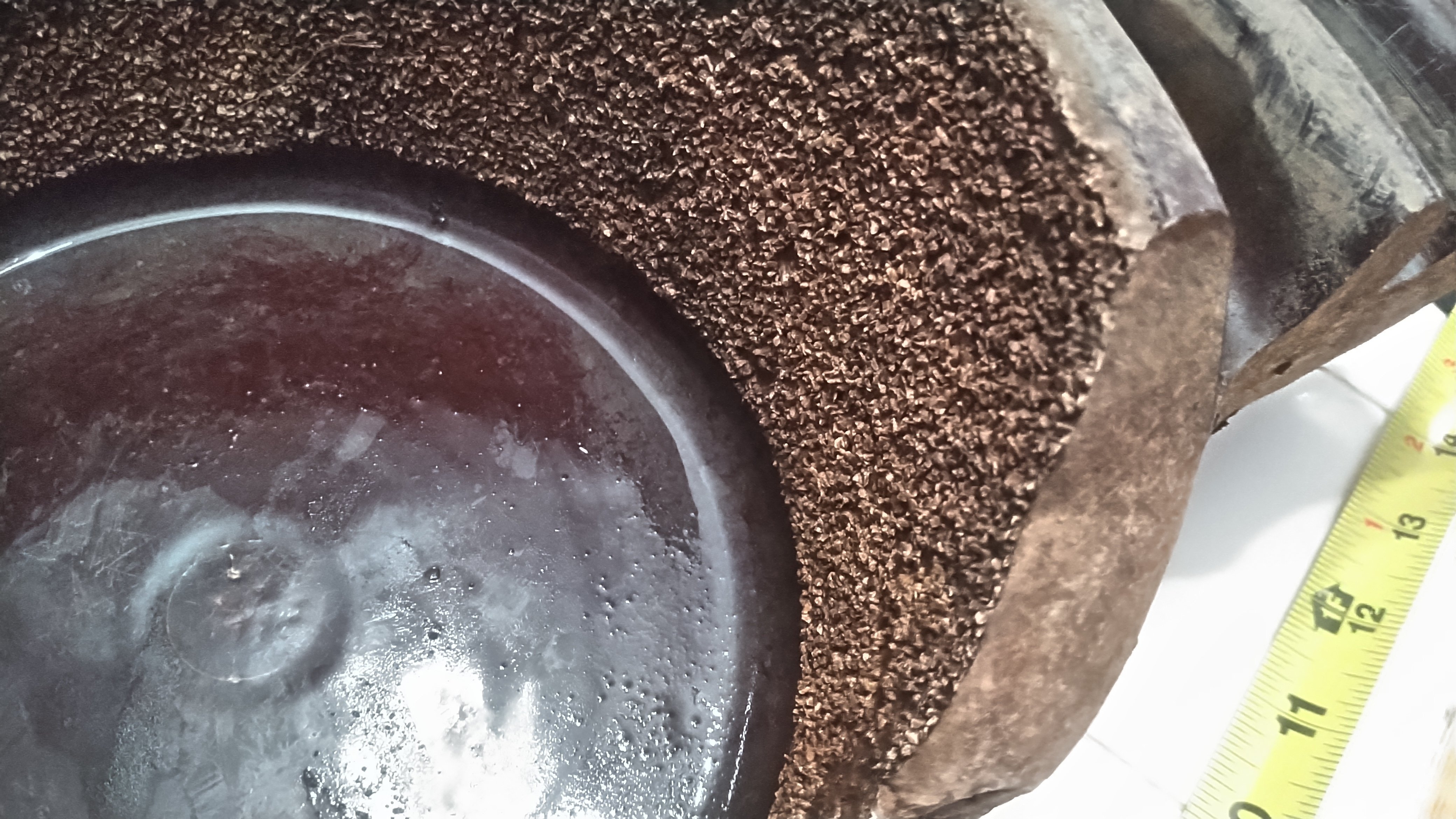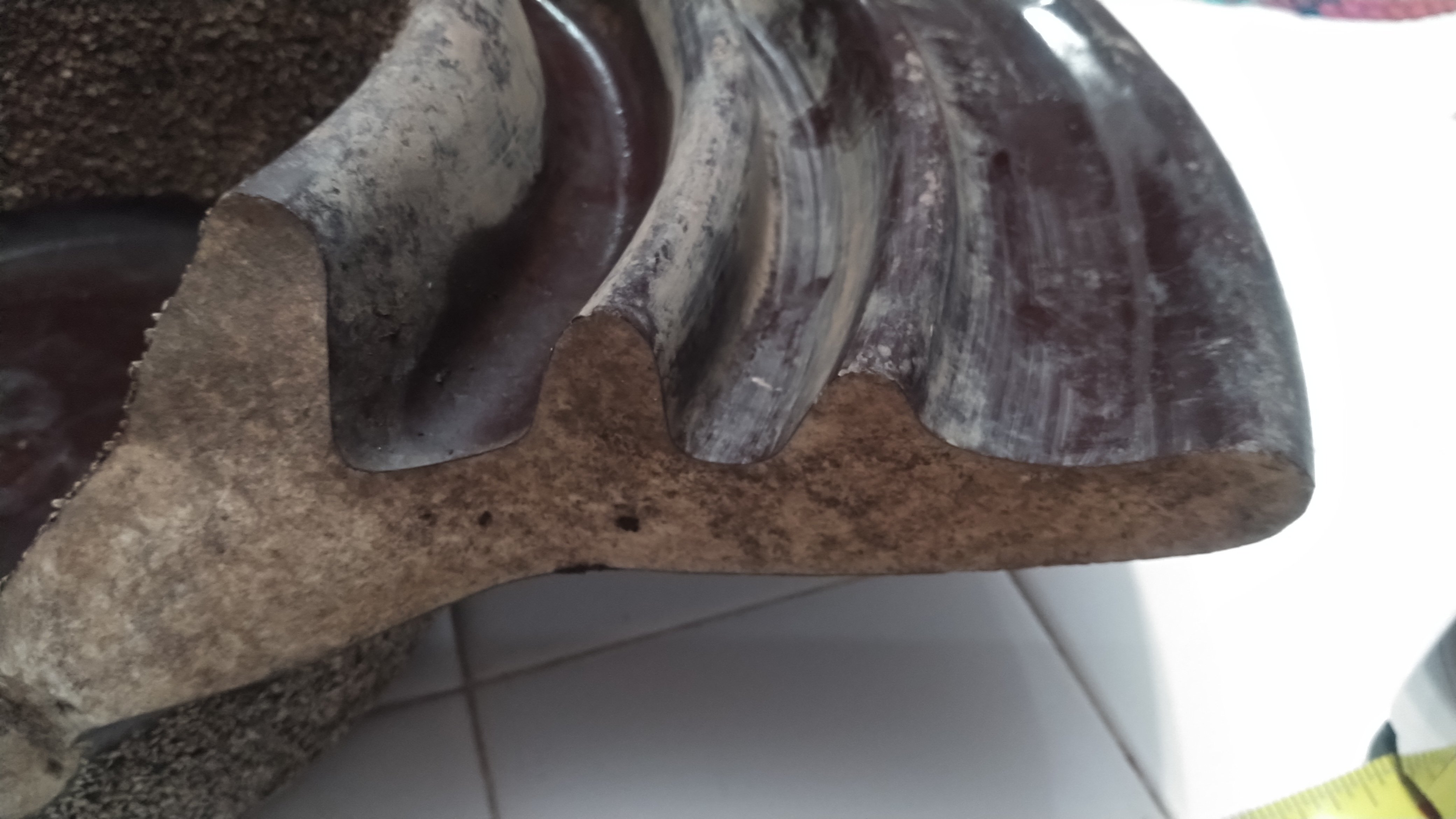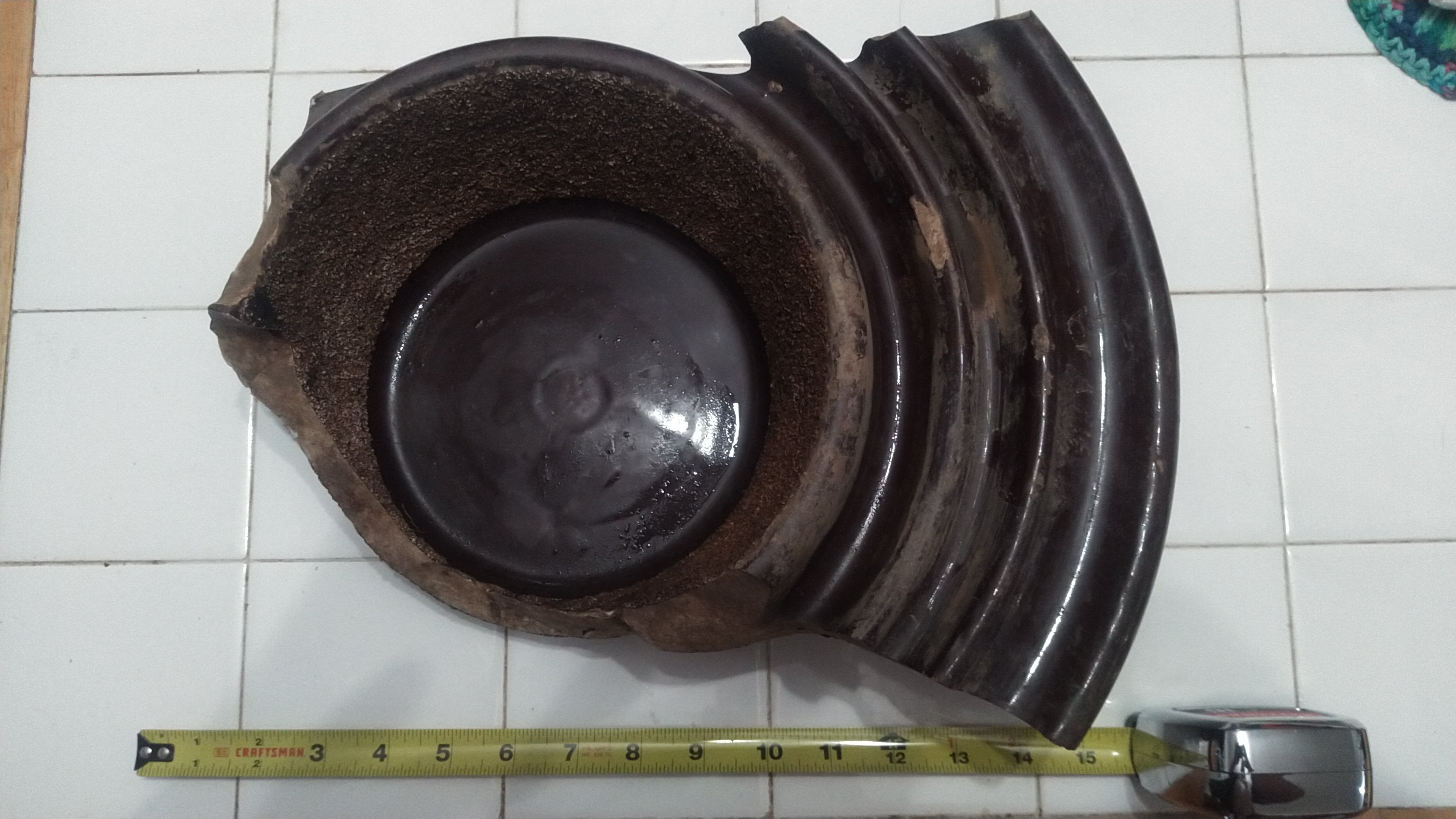probably one of those ceramic power insulators
What is this thing?
Let us help you identify that mysterious object you’ve found.
Currently in CHALLENGE mode: If you've got something obscure knocking about, post a picture, and let's see how we do. Please prefix such posts with "CHALLENGE:" so we know we've got a fighting chance.
I'm starting to think it is part of an insulator. It's just so big to be one. It's almost double the size of the the vintage 1950s one above. Maybe one section of a huge high voltage assembly?
I do know that mines and other things would often bring their own electrical generators and systems and lots of PA has a history of coal and other mining. Someone knowledgeable in that sort of history might be able to confirm/deny that theory.
It's absolutely huge if it's an insulator.
Looks like it to me, albeit a bit large ...
Looks kind of like a lid for a fermentation crock?
crock-Pot or a bowl probably
The surface is too rough for use with food. It's like small gravel or big sand at the surface.
It “could” be a sewer/pipe cap but your geographic location and time period suggests it probably isn’t. I’ve seen reasonably similar items that serve this purpose.
The rough (frit) glaze surface would be the opposite of what you want in a HV bushing, because they would wick and store conductive water.
Interestingly it's on the both the top and the bottom. Perhaps this high surface area makes it more compatible with some specific glues; allowing you to stack a pile of these pieces together to make a full bushing? That might also explain why there is not hole in the middle, this could be a compression style bushing stack for holding wires up in the air off a surface.
I don't know enough about high voltage to speak with any authority, but that totally sounds reasonable.
As for construction of original insulator, that's what I've decided as well. It's a stacked assembly. There are smaller versions.
It's a really big insulator and very possibly could have been used for mining power supply. There are mines within a 1/4 mile.



